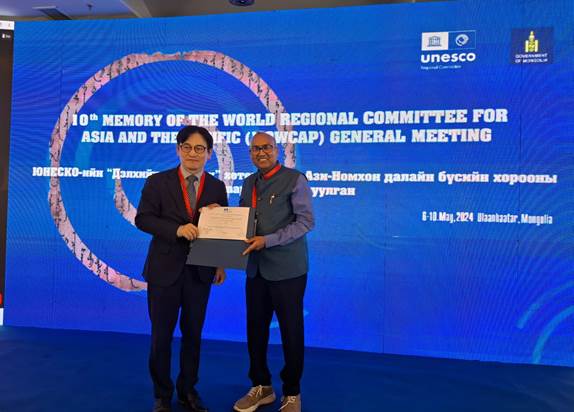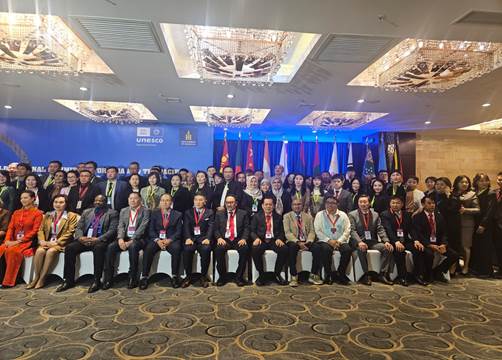The Ramcharitmanas, Panchatantra and Sahṛdayāloka-Locana have been included in ‘UNESCO’s Memory of the World Asia-Pacific Regional Register’. This inclusion is a proud moment for India, a confirmation of the country’s rich literary heritage and cultural legacy. It signifies a step forward in global cultural preservation efforts, highlighting the importance of recognizing and safeguarding the diverse narratives and artistic expressions that shape our shared humanity. By honouring these literary masterpieces, society not only pays homage to the creative genius of their creators but also ensures that their profound wisdom and timeless teachings continue to inspire and enlighten future generations.
The ‘Ramcharitmanas’, ‘Panchatantra’, and ‘Sahṛdayaloka-Locana’ are such timeless works that have deeply influenced Indian literature and culture, shaping the nation’s moral fabric and artistic expressions. These literary works have transcended time and place, leaving an indelible mark on readers and artists both within and outside India. It is noteworthy that ‘Sahṛdayaloka-Locana’, ‘Panchatantra’, and ‘Ramcharitmanas’ were authored by Acharya Anandvardhan, Pt. Vishnu Sharma, and Goswami Tulsidas, respectively.

The Indira Gandhi National Centre for the Arts (IGNCA), played a vital role in securing a historic moment during the 10th meeting of the Memory of the World Committee for Asia and the Pacific (MOWCAP). At the gathering in Ulaanbaatar, 38 representatives from member states convened alongside 40 observers and nominees. Advocating for three Indian nominations, IGNCA ensured their placement in ‘UNESCO’s Memory of the World Asia-Pacific Regional Register’.

Professor Ramesh Chandra Gaur, Dean (Administration) and Head of the Department, Kala Nidhi Division at IGNCA, successfully presented these three entries from India: The Ramcharitmanas, Panchatantra, and Sahṛdayāloka-Locana. Prof. Gaur effectively defended the nominations at the UllanBatar convention. This milestone accentuates IGNCA’s dedication to preserving and promoting India’s cultural heritage, reaffirming its commitment to global cultural preservation and the advancement of India’s literary legacy. This marks the first time IGNCA has submitted nominations to the Regional Register since its inception in 2008.

After undergoing rigorous deliberations and receiving recommendations from the Register Subcommittee (RSC), and subsequent voting by member state representatives, all three nominations secured inclusion, thereby marking significant Indian entries predating the inception of the Register in 2008.


Comments are closed.